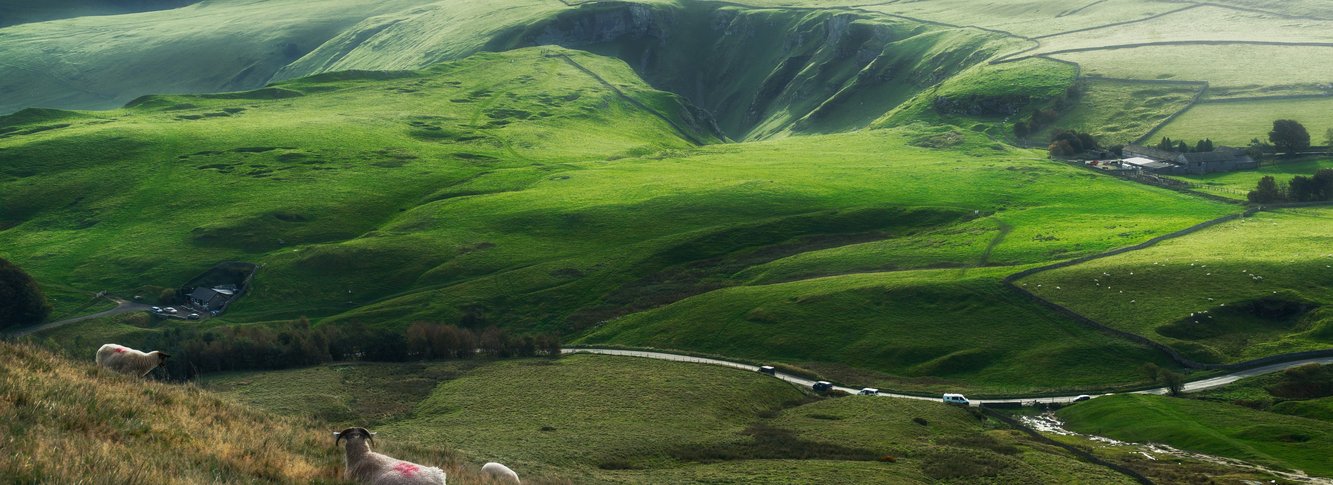| 7 mins read
In February 2024 Rishi Sunak was the first prime minister to speak at the annual conference of the National Farmers’ Union (NFU) since Gordon Brown in 2008. Sunak was no doubt motivated by concerns that the ‘green wall’ of Conservative seats in rural areas was collapsing, alongside the blue and red walls. The threat comes not just from the Liberal Democrats, but also from Labour. Deltapoll carried out a poll of 4,000 adults in January–February 2024 in the 100 constituencies with the most NFU members. They found that the Conservative vote had declined from 58 per cent in 2019 to 32 per cent while the Labour vote had increased from 20 per cent to 36 per cent.
In addition, almost one in four farmers say they will not vote at the next general election, while 39 per cent would vote Conservative, down from 42 per cent in 2022, with 10 per cent voting Liberal Democrat and 7 per cent Labour. ‘Others’ account for 20 per cent. While agricultural policy is a devolved matter, international trade policies—a source of grievance for farmers—are handled at UK level. Brexit has important implications for agriculture, but it is a persistent myth that farmers voted for it. Evidence shows that their voting behaviour mirrored that of the population as a whole, despite differences by level of education, region and type of farm. Many now regret their choice according to a survey in August 2023. Three quarters of respondents said that Brexit had been negative for the UK economy and 69 per cent said it had been negative for their own businesses. If the vote could be held again, there would be an 8 per cent swing from leave to remain, while 65 per cent said that it made them less likely to vote Conservative. A clear majority said that despite pre-Brexit promises of ‘a bonfire of red tape’ upon Brexit, the reverse had been true.
Meanwhile, a survey of over 1,000 people in England’s 100 most rural constituencies revealed an 18 per cent swing away from the Conservatives and a 16 per cent boost for Labour compared with 2019. The Liberal Democrats won just 13 per cent of the support of those polled. If replicated at a general election, twenty of the ninety-six most rural seats held by the Conservatives would change hands. Several cabinet ministers past and present would lose their seats. A further poll in early 2024 estimated that Labour would win fifty-one of the most rural seats and the Conservatives forty-three. Conservative support was 37 per cent, Labour 34 per cent and the Liberal Democrats trailed on 14 per cent. Compared with times gone by, farming communities more widely are leaving the Conservatives in record numbers. But why?
Farmer grievances
The root of farmer grievances is psychological in that many feel their work in food production is no longer appreciated by an urbanised society. Livestock farming is demanding physical work and farmers need a range of skills, from mechanical repairs to benchmarking their performance. It is considered that food security has been displaced by concerns about the environment, particularly biodiversity and climate change. Nevertheless, intensive farming can cause serious environmental problems. River pollution is an increasingly salient issue and an important source is run-off from fertilisers. Dairy farms can require major investment to raise them to acceptable standards and environmental regulators have increased inspections and enforcement actions.
Farmers have also been concerned about the phasing out of the subsidies formerly received under the Common Agricultural Policy (CAP). One of the advantages of these subsidies was that the conditions attached to obtaining them were not unduly stringent and the money could be used as the farmer saw fit. The government pledged to maintain the same budget after Brexit, but this has been eroded in real terms by inflation. Farmers now have to apply for a range of environmental grants which may not suit all farms and involve transaction costs in making the application and monitoring of how the money is used.
Farmers also resent the way in which power has moved down the food chain to processors and retailers. A groceries code adjudicator was appointed by government in 2013 to try and ensure more fairness in relations between retailers and producers, with supermarkets typically making profits of about 3 per cent and accused of profiteering. Surveys conducted on the adjudicator’s behalf by YouGov have shown ‘how inflation and cost price increase negotiations have strained relationships between retailers and suppliers’, along with de-listing—where retailers stop selling a supplier’s product—and inaccurate forecasting. De-listing can be a particular problem in horticulture if a supplier has invested heavily to meet the specifications of a particular retailer.
Farmers have a justified grievance over imports from countries that do not have to meet the same animal welfare, labour or environmental standards as the UK. Of course, imposing tariffs on these imports would push up the price of food and also disadvantage emerging countries like Kenya, an important supplier to the UK. Farmers have reason to be aggrieved about how international trade deals negotiated when Liz Truss was responsible: a subsequent DEFRA secretary admitted that the trade deal with Australia was not good for UK farmers.
Conclusions
There is no doubt that farmers face many challenges. Hard work often produces poor returns. Government has been negligent in its conduct of trade deals, but fortunately a deal with the US (which would have been particularly damaging) is now off the agenda. The Conservatives are right to be concerned about losing votes in rural areas, but there is some hope that Labour opposition to fox hunting may rally traditional supporters. But post-Brexit British farming faces deep structural changes which are bound to be unpopular with many farmers.
Need help using Wiley? Click here for help using Wiley







